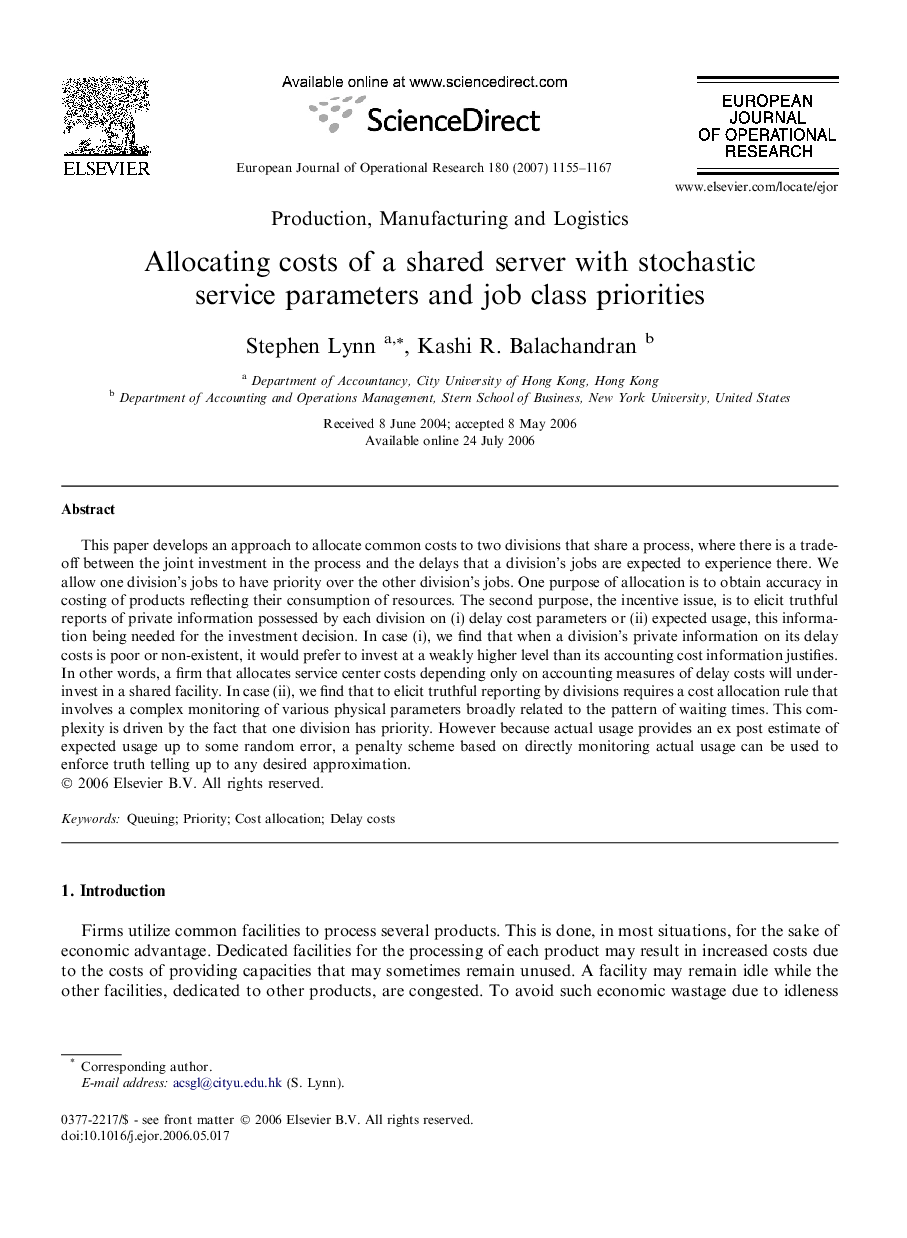| Article ID | Journal | Published Year | Pages | File Type |
|---|---|---|---|---|
| 483090 | European Journal of Operational Research | 2007 | 13 Pages |
This paper develops an approach to allocate common costs to two divisions that share a process, where there is a trade-off between the joint investment in the process and the delays that a division’s jobs are expected to experience there. We allow one division’s jobs to have priority over the other division’s jobs. One purpose of allocation is to obtain accuracy in costing of products reflecting their consumption of resources. The second purpose, the incentive issue, is to elicit truthful reports of private information possessed by each division on (i) delay cost parameters or (ii) expected usage, this information being needed for the investment decision. In case (i), we find that when a division’s private information on its delay costs is poor or non-existent, it would prefer to invest at a weakly higher level than its accounting cost information justifies. In other words, a firm that allocates service center costs depending only on accounting measures of delay costs will under-invest in a shared facility. In case (ii), we find that to elicit truthful reporting by divisions requires a cost allocation rule that involves a complex monitoring of various physical parameters broadly related to the pattern of waiting times. This complexity is driven by the fact that one division has priority. However because actual usage provides an ex post estimate of expected usage up to some random error, a penalty scheme based on directly monitoring actual usage can be used to enforce truth telling up to any desired approximation.
